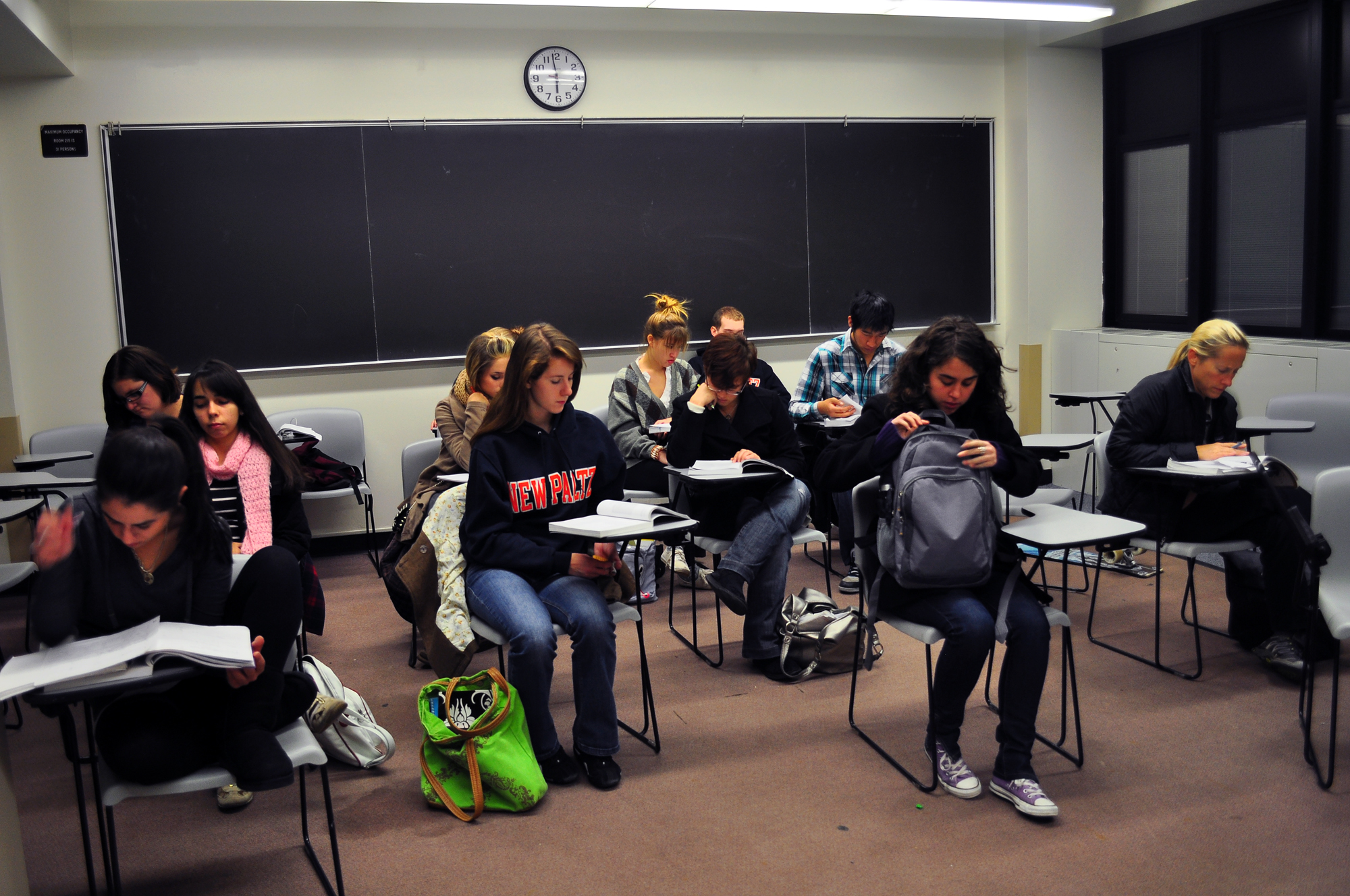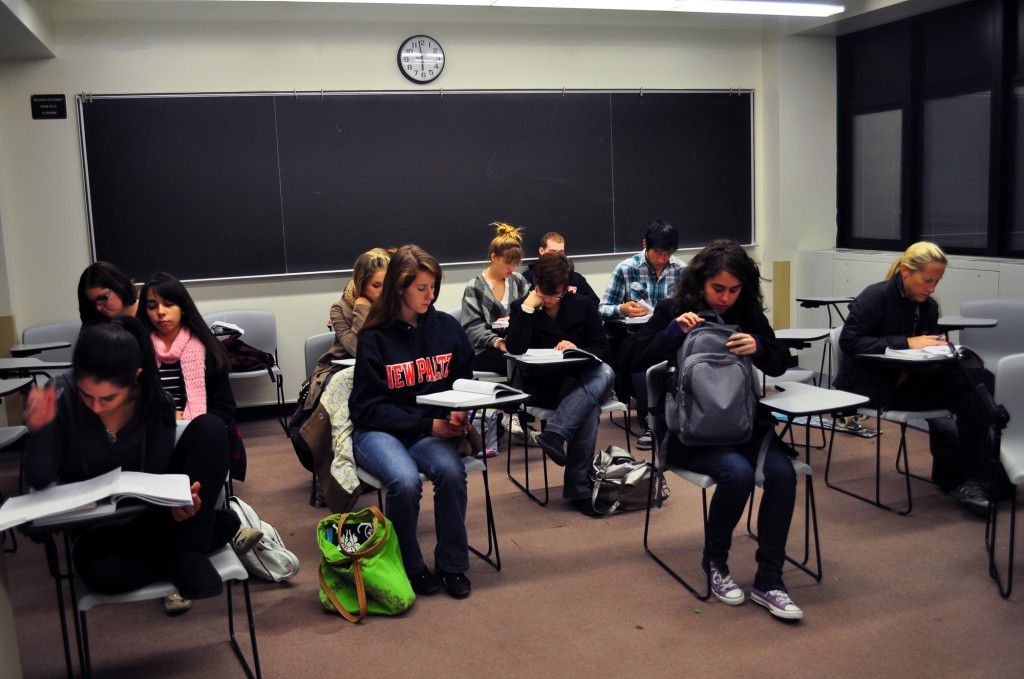

The SUNY New Paltz Executive Committee, Academic Senate and faculty approved the formation of the Liberal Education Ad Hoc Committee this past fall semester after the university participated in the Association of American Colleges and Universities (AAC&U) Summer Institute on General Education.
SUNY New Paltz was one out of 37 teams from around the country selected to partake in this year’s AAC&U Summer Institute on General Education, in preparation for the upcoming review and revision of general education.
“The purpose was to advance the participating colleges’ revision and improvement of their general education programs,” said Stella Deen, interim graduate dean and associate provost.
After their participation in the General Education Institute, Interim President Donald Christian, who was one of the five representing the university, said an action plan was created “that focused on backing away and thinking about what we want all students graduating from New Paltz to know and be able to do, and what are those broader educational goals and foundations and philosophies that general education is a part of.”
Deen said the first part of the plan is the creation of the Liberal Education Ad Hoc Committee, which has been formed in an effort to initiate studies, conversation, review and analysis of principles about educational aims which includes general education.
Committee members will also work on developing a broader understanding about general education, its role in the curriculum and its relationship to the major, according to Deen.
Deen, who chairs the committee, said the group will be comprised of 18 faculty, one SUNY senator, one member from each of the general education board and the curriculum committee, two students selected by the provost and presiding officer, the provost, two members of Student Affairs and possibly two alumnus selected by the provost in consultation with the presiding officer.
“Adjunct to the committee will be a ‘Futures Committee’ of pre-tenure faculty to meet separately, to share ideas and formulate collective views and perspectives, and communicate these discussions to inform the work of the ad hoc committee” said Deen.
According to Christian, the committee will be developing surveys to gather information from students, faculty and staff about their opinions of general education. Focus groups are also a possibility.
“Our emphasis this year is really trying to set the stage for review of general education next year by establishing shared understanding, careful evaluation of different models of general education at other institutions, asking questions about what the right kind of relationships between general education and the major are,” said Christian.
Jill Moskowitz, a transfer student and fifth-year anthropology major, said that although she understands the existence of general education requirements, she thinks a revision is definitely a good thing.
While already taking writing-heavy upper division courses for her major, Moskowitz said she also had to fulfill a writing intensive outside of her field of study.
“My major doesn’t offer a lot of writing intensive courses, it was kind of frustrating,” she said. “I think each major should have classes that qualify as writing intensives.”
Even though a new program will be developed, Christian said one of the challenges will be developing a program that gives administration and students the right level of flexibility, but still meets the SUNY guidelines.
“Another issue that needs to be wrestled with is what the right balance between choice and structure is,” said Christian. “If you have a requirement for which students can choose from 60 different courses, how do you develop shared learning goals and outcomes that are developed in all 60 of those courses, compared with a program in which you have four courses that students can chose from?”
According to Deen, the committee hopes to bring a resolution to the faculty toward the end of the fall semester. If it is approved by faculty, the Provost and appropriate governance groups will organize a process for the development of a revised general education program, based on the gathered principles of the committee’s resolution.
